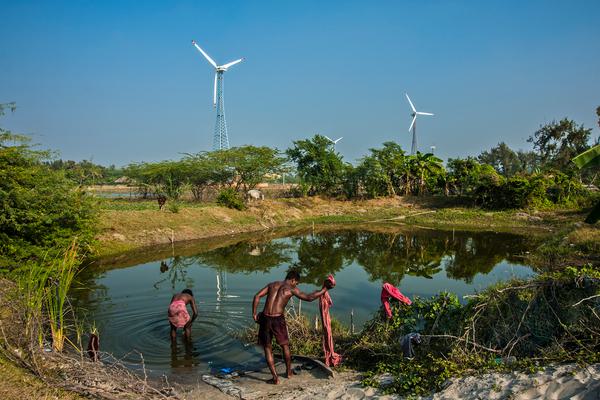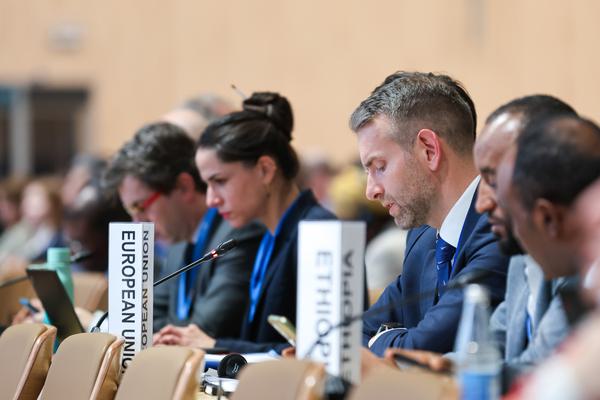White Paper: Leveraging the Spectrum of Finance for Just Transitions
19 December 2024

Summary
- Trillions of dollars are urgently needed annually to meet net zero by 2050. For this to be realised, significant changes to financial practice are required.
- Early-stage experimentation is already emerging in public and private finance, and now is the time to take stock and identify how to scale just transitions finance.
- This report - White Paper: Leveraging the Spectrum of Finance for Just Transitions - from IHRB and the Just Transition Finance Lab at the London School of Economics provides a snapshot of the spectrum of financial instruments that already, or have the potential to, contribute to just transitions. It maps a range of 30 examples of financial instruments being deployed across the fields of public, private, and blended finance to support the achievement of net-zero.
- The report provides a number of conclusions: in the relatively small ecosystem of just transition finance, there is a lack of alignment of actions taken by financial actors, in particular private finance, to address the climate crisis and protect the human rights and development prospects of vulnerable communities. But a major constraint holding back finance is the lack of agreed principles, taxonomies and metrics for the just transition. IHRB and many other organisations are actively collaborating on innovations, research, and sharing concrete examples of practice to help resolve this challenge.
Background
The just transitions concept has grassroots origins in the 1970’s, when activists fought to align trade union and worker struggles with environmental action and concern for environmental justice.
The concept has grown over the last several decades to today encompass a comprehensive agenda reflecting the social imperatives - such as poverty and inequality - at stake in the net-zero agenda. Political necessity, business logic, and social pressures have prompted increasing government, corporate, finance, and civil society action to seek to concretely translate just transitions into practical action.
The just transitions imperative means that all climate related investments will need to be aligned with principles of human rights and social justice.
Climate finance will need to expand to help reach net zero by 2050. It has recently been estimated that around $8.5 trillion a year of climate finance will be needed from the end of this decade, of which nearly half must be invested in energy and food systems, as well as industry, transport, and the built environment in emerging markets and developing economies (EMDEs).
In EMDEs, the economic transformations required to reach net-zero by 2050, build the resilience of impacted communities and their economies, restore nature and pay for the loss and damage caused by climate disasters will require significant upfront investment. According to the Independent High-Level Expert Group (IHLEG) on Climate Finance, EMDCs (excluding China) will need to invest $2.4 trillion every year from 2030 in emissions reductions action, adaptation advancements, and in protecting and restoring nature. Of this, $1 trillion has to come from external public and private flows.
This report was initially inspired by the “Spectrum of Capital” originating in the early years of the impact investing movement. The "Spectrum of Capital" is entirely relevant today, and worthy of building on given the climate imperative and just transitions context. As such, this report maps an initial range of financial instruments that are already or could be used to implement just transitions principles and priorities. The aim is to illustrate the interconnected roles that various types of financial actors and instruments could be playing – and in so doing, exemplify the potential for greater transformation.
Report attributions
This report has been jointly published by the Institute for Human Rights and Business (IHRB) and the Just Transition Finance Lab (JTFL) based at the Grantham Research Institute on Climate Change and the Environment in the London School of Economics.
This report was written by Nick Robins, Haley St. Dennis, John Morrison, and Sangeeth Selvaraju. It received significant input from Brendan Curran and Jodi-Ann Wang at the JTFL and Scott Jerbi and Tokelo Shai of IHRB. It draws on background research provided by Miguel Rescalvo and Jeremy Buhain of Neyen Breathe.
The insights and recommendations are based on engaging a diverse range of financial institutions on their climate and human rights impacts, as well as dedicated desktop research, expert interviews, and multistakeholder dialogues with practitioners across the financial system.
Suggested citation: Institute for Human Rights and Business (IHRB) and Just Transition Finance Lab (JTFL) “White Paper: Leveraging the Spectrum of Finance for Just Transitions” (2024), available at: https://www.ihrb.org/resources/white-paper-leveraging-the-spectrumof-finance-for-just-transitions
The JTFL and IHRB are committed to engagement with all stakeholders on these critical issues, and welcome any feedback on this report. Please contact: N.V.Robins@lse.ac.uk and Haley.St.Dennis@ihrb.org




